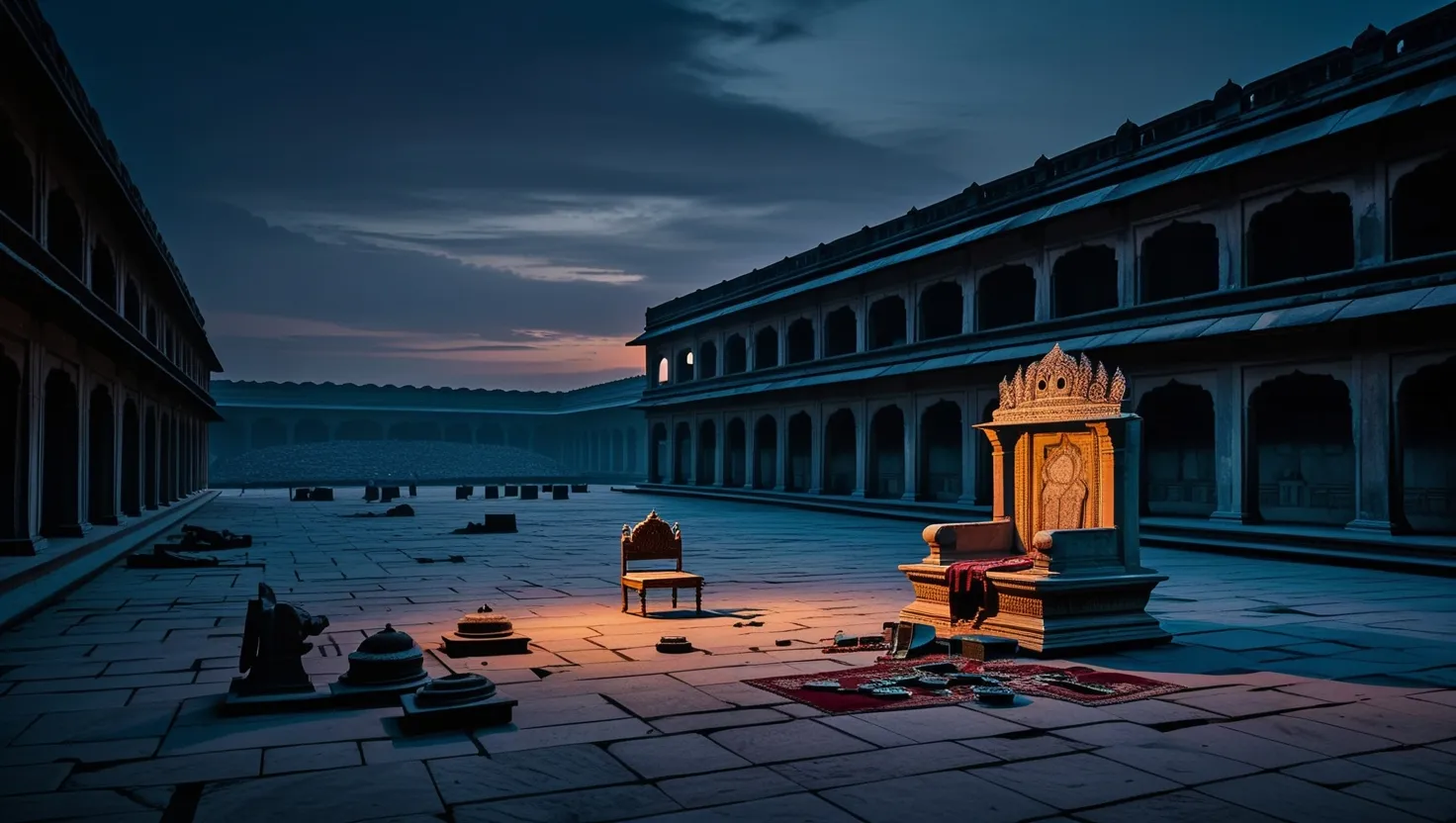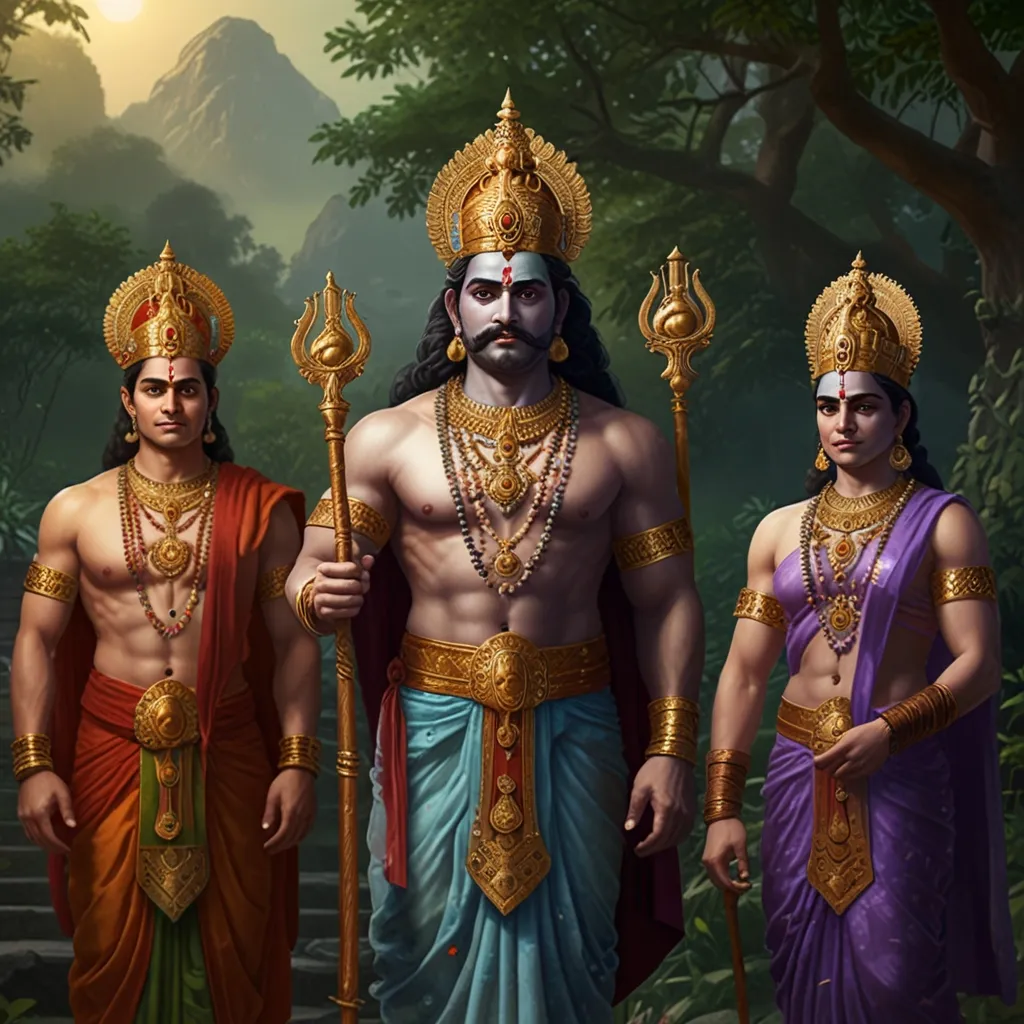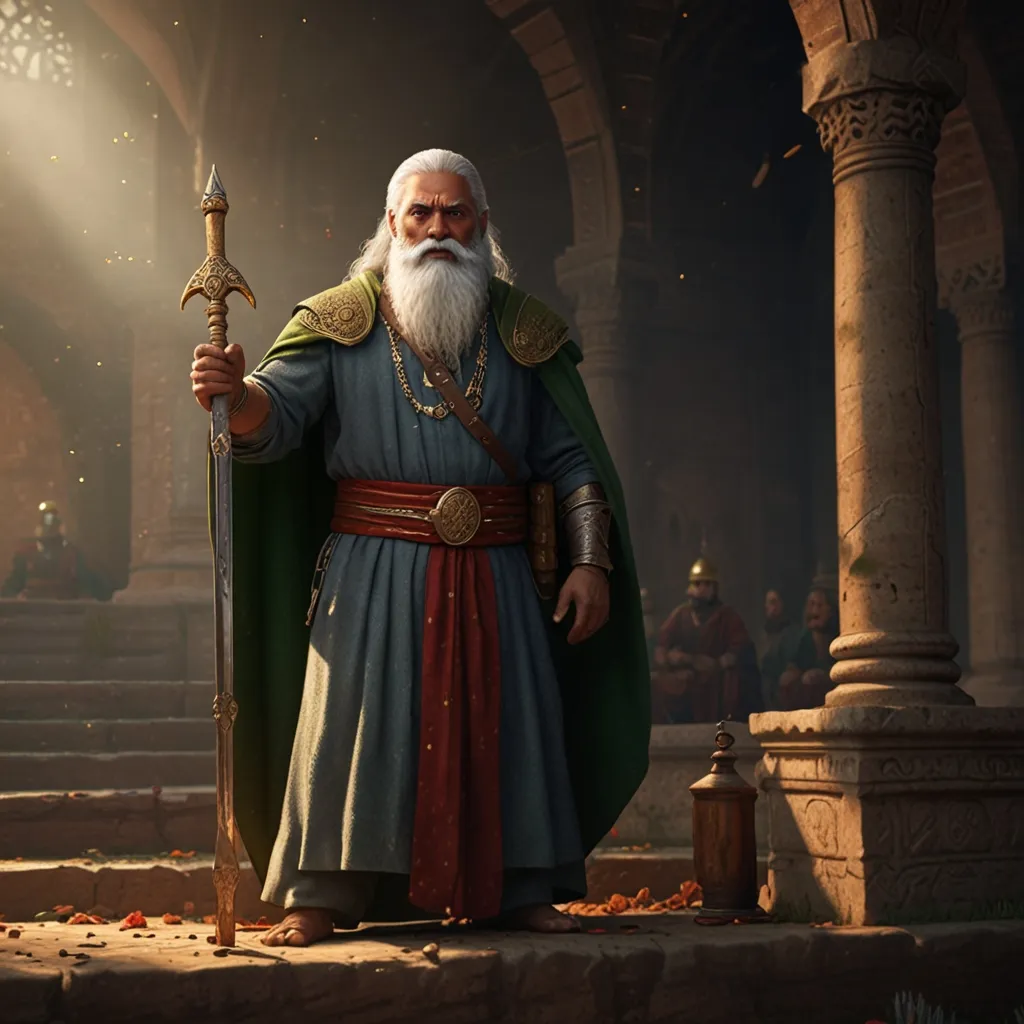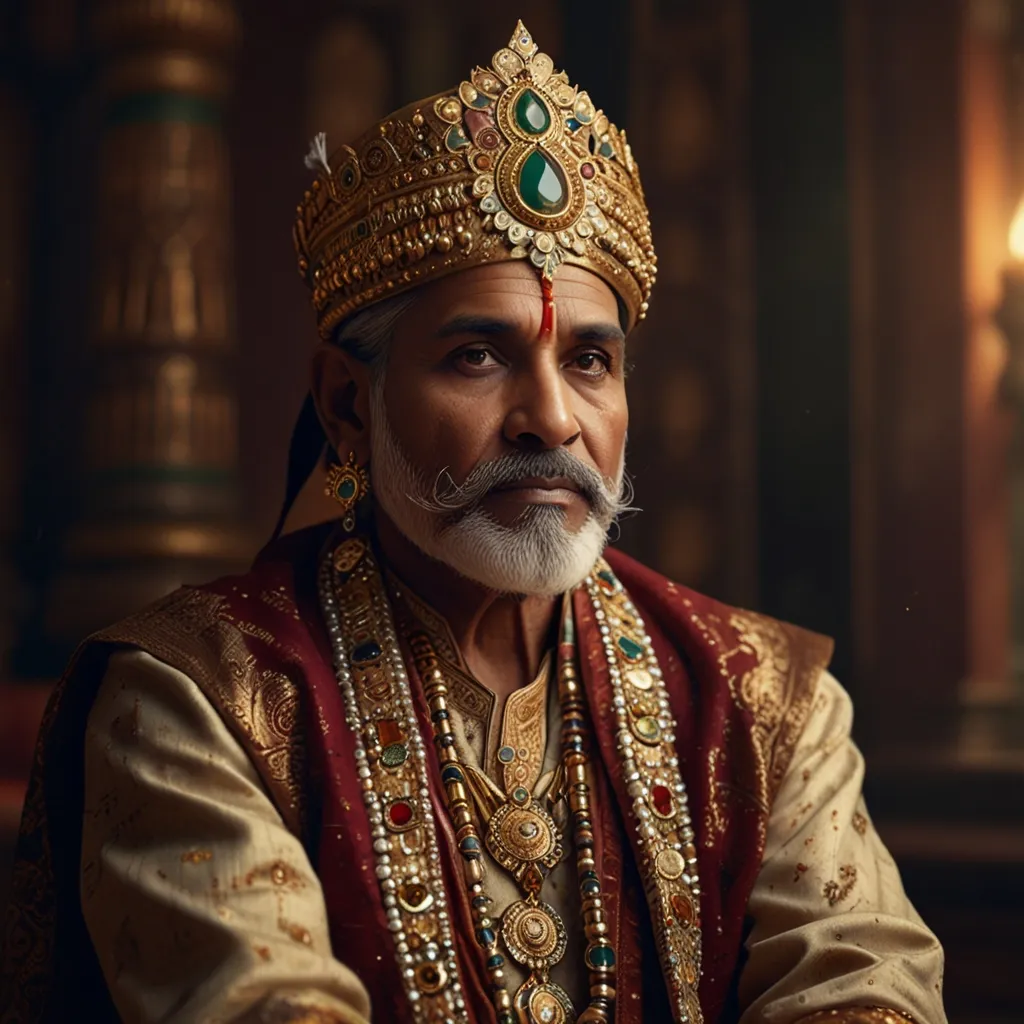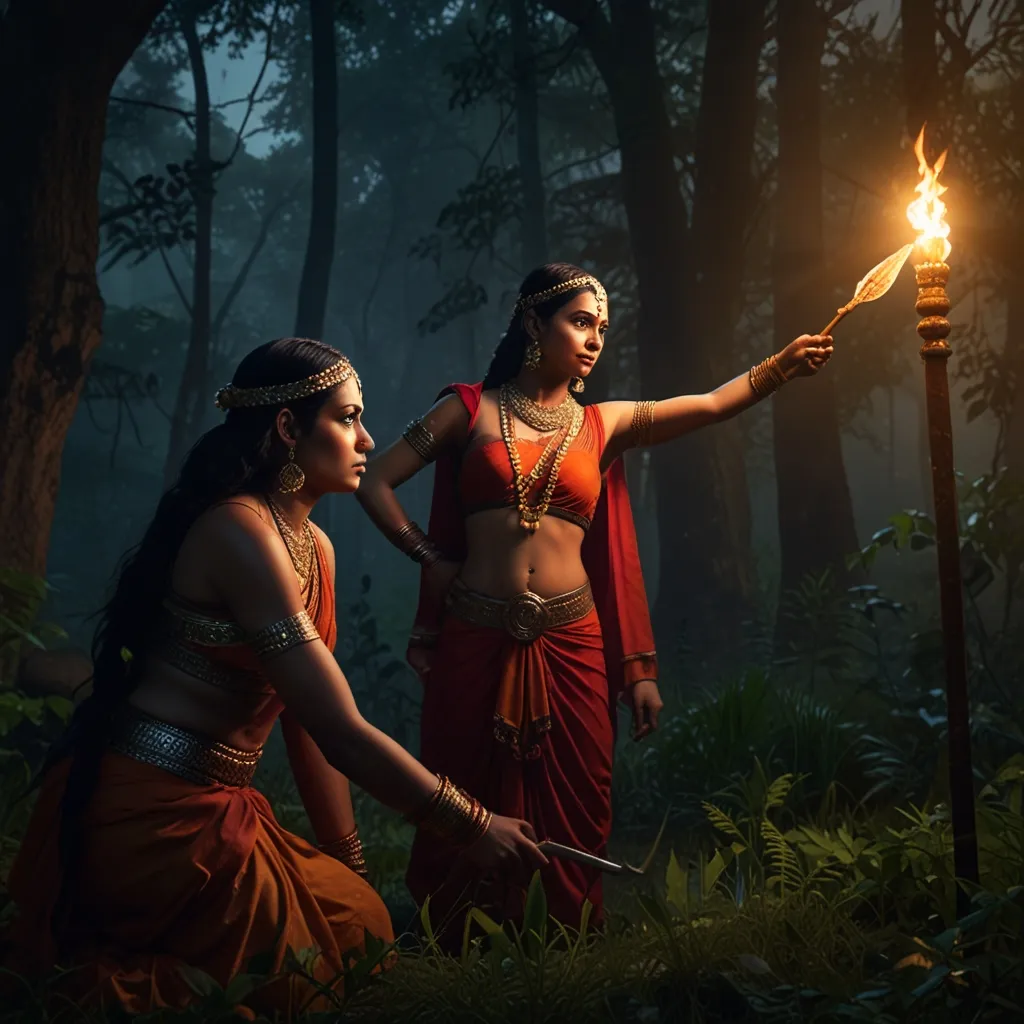Have you ever watched someone do something wrong and thought, “They should pay for that”? That feeling is familiar to all of us. But what happens when that feeling turns into action? Does it become justice, or does it become something darker—something like vengeance? The Mahabharata, one of the longest and most powerful stories ever told, doesn’t just ask this question. It lives inside it. The whole epic is a giant mirror held up to our own struggles with right and wrong, fairness and fury.
Let’s start with Draupadi. She’s not just a queen. She’s a woman who is dragged into a hall full of men, humiliated, and treated like property. When she asks, “Did Yudhishthira lose himself before staking me?” she’s not just questioning the rules of gambling. She’s asking, “Where is justice here?” No one answers. And that silence is deafening. It’s not just about her. It’s about every time someone is wronged and no one speaks up. What happens when justice is ignored? The story shows us: vengeance is born.
Draupadi’s vow to leave her hair unbound until it’s washed with Dushasana’s blood is not just a dramatic line. It’s a turning point. It’s the moment when a personal injury becomes a public cause. But here’s the thing: is her demand for justice, or is it revenge? The line is thin. She wants accountability, but she also wants blood. And that’s the first lesson the Mahabharata teaches us: justice and vengeance often look the same, but they feel very different.
Now, think about Yudhishthira. He’s the eldest Pandava, known for his truthfulness and love of peace. He doesn’t want war. He’d rather walk away, forgive, forget. But when Draupadi is hurt, when their kingdom is stolen, when their honor is trampled, he starts to wonder: Is peace always the right answer? Is it just to let evil go unpunished? His struggle is real. He’s not a warrior. He’s a thinker. And yet, he ends up leading an army. Why? Because he realizes that sometimes, letting injustice win is itself a kind of wrong. But even as he fights, he’s haunted by doubt. Is this war for justice, or is it just revenge dressed up as duty?
Krishna, the guide, the god, the friend, steps in here. He doesn’t just cheer for the Pandavas. He gives them a reason to fight that’s bigger than personal anger. He tells them this war is not about revenge. It’s about dharma—about restoring balance, about doing what must be done, even if it’s painful. But here’s the twist: Krishna himself uses tricks, lies, and even deception to help the Pandavas win. Is that justice? Or is it just clever revenge? The Mahabharata doesn’t give us a simple answer. It makes us ask: Can justice ever be pure, or does it always get mixed with human weakness?
There’s a famous line from the Bhagavad Gita: “You have the right to action, but never to the fruits of action.” Krishna says this to Arjuna, right before the war. It’s not just about fighting. It’s about letting go of the need for revenge. It’s about doing your duty without getting caught up in anger or hate. But how many of us can really do that? When someone hurts us, do we really care about duty? Or do we just want them to suffer?
The war happens. The Pandavas win. But victory feels empty. The battlefield is full of dead bodies—friends, family, enemies. Draupadi’s sons are gone. Yudhishthira sits on the throne, but he’s not happy. He’s broken. He’s not celebrating. He’s mourning. The epic asks: Was it worth it? Did justice win, or did vengeance just leave everyone worse off?
Here’s something most people don’t talk about: the aftermath. After the war, the Pandavas don’t live happily ever after. They rule, but their kingdom is full of ghosts. The cost of vengeance is not just paid by the enemy. It’s paid by everyone. Even the winners lose something. The Mahabharata shows us that justice, when it’s mixed with vengeance, leaves scars that no amount of power can heal.
Now, let’s talk about Karna. He’s one of the most tragic figures in the story. He’s born into greatness but treated like trash because of his birth. He’s wronged his whole life. But does he seek revenge? No. He chooses loyalty. He chooses generosity. He fights for Duryodhana, not because he loves him, but because he believes in keeping his word. When he finally faces Arjuna, he knows the truth about their shared blood. And in that moment, he doesn’t curse. He doesn’t rage. He accepts his fate. Karna’s story is a quiet challenge to the whole idea of vengeance. It asks: Can we break the cycle? Can we choose something better?
The Mahabharata is full of moments like this. It’s not just about heroes and villains. It’s about choices. Every character is forced to decide: Do I seek justice, or do I seek revenge? And the story never tells us the right answer. It just shows us the cost of each path.
Here’s a question for you: Have you ever wanted revenge? Not just a little anger, but real, deep revenge? What did it feel like? Did it make you feel better, or did it just make you feel heavier? The Mahabharata suggests that revenge might feel good in the moment, but it rarely brings peace. Justice, on the other hand, is not about feeling good. It’s about doing what’s right, even when it’s hard.
There’s a famous quote from the epic: “When dharma is destroyed, I manifest myself.” Krishna says this. It’s not about revenge. It’s about balance. It’s about making sure the world doesn’t fall into chaos. But the story also shows us that even when dharma is restored, the world is never the same. The scars remain.
Modern life is full of echoes of the Mahabharata. Think about the news. Think about the people who demand justice for wrongs done to them. Sometimes, their demands are fair. Sometimes, they cross the line into revenge. The epic reminds us that justice is not about winning. It’s about healing. It’s about making things right, not just making the other side suffer.
But here’s the hard part: How do we know when we’ve crossed the line? When does justice become vengeance? The Mahabharata doesn’t give us a checklist. It gives us stories. It gives us choices. It gives us pain. And it asks us to think.
Let’s end with a simple truth: Justice and vengeance are not the same. Justice is about fairness, about balance, about making things right. Vengeance is about pain, about making someone pay, about settling a score. The Mahabharata shows us that when we mix the two, we often end up with tragedy. But it also shows us that sometimes, justice requires us to act, even when it hurts.
So, the next time you see someone do something wrong, ask yourself: Do I want justice, or do I want revenge? And remember, the answer might not be as simple as you think.
